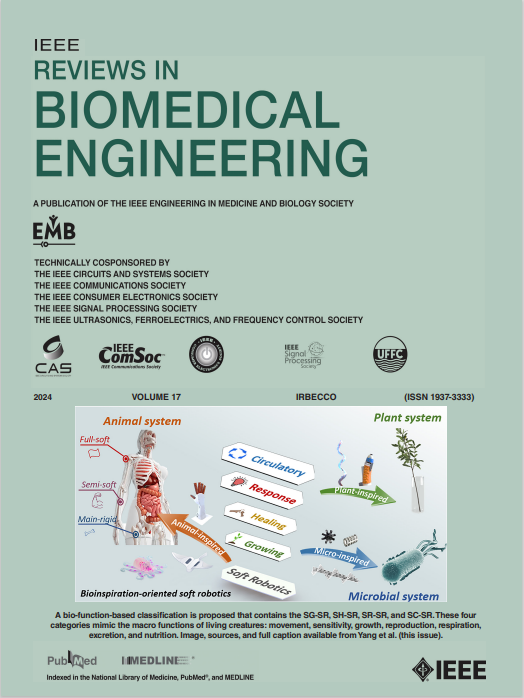Systematic Review of Advanced AI Methods for Improving Healthcare Data Quality in Post COVID-19 Era
IF 17.2
1区 工程技术
Q1 ENGINEERING, BIOMEDICAL
引用次数: 7
Abstract
At the beginning of the COVID-19 pandemic, there was significant hype about the potential impact of artificial intelligence (AI) tools in combatting COVID-19 on diagnosis, prognosis, or surveillance. However, AI tools have not yet been widely successful. One of the key reason is the COVID-19 pandemic has demanded faster real-time development of AI-driven clinical and health support tools, including rapid data collection, algorithm development, validation, and deployment. However, there was not enough time for proper data quality control. Learning from the hard lessons in COVID-19, we summarize the important health data quality challenges during COVID-19 pandemic such as lack of data standardization, missing data, tabulation errors, and noise and artifact. Then we conduct a systematic investigation of computational methods that address these issues, including emerging novel advanced AI data quality control methods that achieve better data quality outcomes and, in some cases, simplify or automate the data cleaning process. We hope this article can assist healthcare community to improve health data quality going forward with novel AI development.后新冠肺炎时代提高医疗保健数据质量的先进人工智能方法的系统回顾
在新冠肺炎大流行开始时,有人大肆炒作人工智能(AI)工具在抗击新冠肺炎方面对诊断、预后或监测的潜在影响。然而,人工智能工具尚未取得广泛成功。其中一个关键原因是新冠肺炎大流行要求更快地实时开发人工智能驱动的临床和健康支持工具,包括快速数据收集、算法开发、验证和部署。然而,没有足够的时间进行适当的数据质量控制。从新冠肺炎的惨痛教训中,我们总结了新冠肺炎大流行期间重要的健康数据质量挑战,如数据标准化不足、数据缺失、制表错误以及噪音和人为因素。然后,我们对解决这些问题的计算方法进行了系统的研究,包括新兴的先进人工智能数据质量控制方法,这些方法可以实现更好的数据质量结果,在某些情况下,还可以简化或自动化数据清理过程。我们希望这篇文章能够帮助医疗保健界在新的人工智能开发中提高健康数据质量。
本文章由计算机程序翻译,如有差异,请以英文原文为准。
求助全文
约1分钟内获得全文
求助全文
来源期刊

IEEE Reviews in Biomedical Engineering
Engineering-Biomedical Engineering
CiteScore
31.70
自引率
0.60%
发文量
93
期刊介绍:
IEEE Reviews in Biomedical Engineering (RBME) serves as a platform to review the state-of-the-art and trends in the interdisciplinary field of biomedical engineering, which encompasses engineering, life sciences, and medicine. The journal aims to consolidate research and reviews for members of all IEEE societies interested in biomedical engineering. Recognizing the demand for comprehensive reviews among authors of various IEEE journals, RBME addresses this need by receiving, reviewing, and publishing scholarly works under one umbrella. It covers a broad spectrum, from historical to modern developments in biomedical engineering and the integration of technologies from various IEEE societies into the life sciences and medicine.
 求助内容:
求助内容: 应助结果提醒方式:
应助结果提醒方式:


